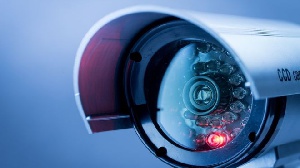In today's fast-paced world, smart home technologies have revolutionized how we live, and the real estate industry is no exception. Ghana, a vibrant and rapidly developing country, is embracing these innovative solutions to enhance property management and provide a superior living experience for residents.
In this article, we will explore the various smart home technologies transforming property management landscapes in Ghana, while delving into the benefits and challenges associated with their adoption.
The Rise of Smart Home Technologies
Smart home technologies have become increasingly prevalent in recent years, driven by advancements in the Internet of Things (IoT), artificial intelligence, and connectivity. These cutting-edge solutions offer a wide range of features, from automated lighting and climate control to advanced security systems and voice-activated assistants. By incorporating these technologies into residential properties, property managers can enhance energy efficiency, improve security, and provide residents with unparalleled convenience and comfort.
Energy Management and Sustainability
One of the most significant advantages of smart home technologies is their ability to optimize energy consumption. Advanced thermostat systems, for instance, can learn residents' preferences and adapt to their schedules, ensuring that heating and cooling systems operate efficiently. Additionally, smart lighting solutions can automatically adjust brightness levels based on occupancy and ambient light conditions, reducing energy waste.
Sustainable Living Practices
As environmental consciousness grows, smart home technologies promote sustainable living practices. By integrating features such as water management systems, solar panel integration, and real-time energy monitoring, property managers can reduce their carbon footprint and educate residents on eco-friendly living habits.
Enhancing Security and Safety
In Ghana, where security is a paramount concern, smart home technologies offer a reliable solution for safeguarding properties and their occupants. Advanced security systems, equipped with motion sensors, cameras, and remote monitoring capabilities, provide real-time alerts and enable property managers to respond promptly to potential threats.
Access Control and Visitor Management
Smart access control systems have revolutionized visitor management in residential properties. By leveraging biometric authentication or mobile-based access, property managers can ensure that only authorized individuals gain entry, reducing the risk of unauthorized access and enhancing overall security.
Emergency Response and Smart Evacuation
In an emergency, such as a fire or natural disaster, smart home technologies can play a vital role in ensuring the safety of residents. Integrated smoke detectors, carbon monoxide sensors, and smart evacuation systems can promptly alert residents and emergency services while providing real-time updates and guidance on the safest evacuation routes.
Enhancing Resident Convenience and Comfort
Beyond energy management and security, smart home technologies offer a wealth of features designed to improve the overall living experience for residents. Voice-activated assistants, for instance, enable residents to control various aspects of their homes with simple voice commands, from adjusting the temperature to operating entertainment systems.
Smart Appliance Integration
By integrating smart appliances into residential properties, property managers can provide residents with a seamless and intuitive living experience. From refrigerators that can track expiration dates and suggest recipes based on their contents to washing machines that can be remotely monitored and controlled, smart appliances enhance convenience and efficiency.
Personalized Home Automation
One of the most appealing aspects of smart home technologies is the ability to personalize the living experience. Through advanced home automation systems, residents can create customized scenes and routines that cater to their unique preferences. For example, a "movie night" scene could automatically dim the lights, adjust the temperature, and activate the entertainment system with a single command.
Conclusion
Smart home technologies are transforming the property management landscape in Ghana, offering a multitude of benefits for both property managers and residents alike. From energy efficiency and enhanced security to personalized comfort and convenience, these innovative solutions are reshaping the way we live and interact with our homes.
Opinions of Tuesday, 25 June 2024
Columnist: VAAL REAL ESTATE















